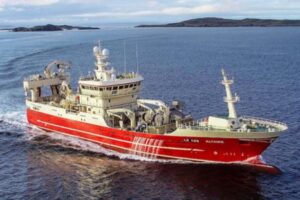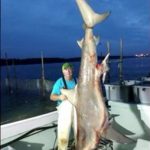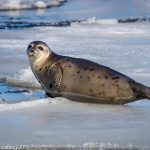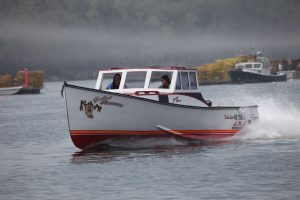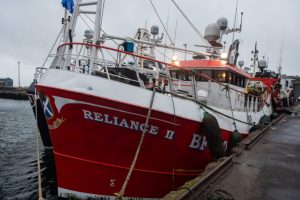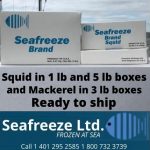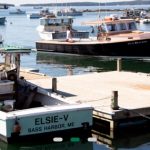Tag Archives: U.S. fishing industry
Fishing industry’s fight against offshore wind farms reaches far and wide
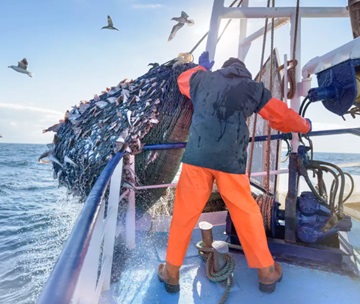 Off the coast of Montauk, New York is some of the most fertile fishing grounds in all of North America. It is an area that has been sustainably fished for over 400 years, feeding countless Americans along the way. It also happens to be an area where energy companies, some foreign-owned, are trying to install offshore wind farms. Political agendas and lobbyist pull strings have put that sustainable fishing at risk. As a result, the Vineyard Wind project has embroiled generational fishermen into a lawsuit, and a battle for their own profession. Roy Maynard of the Texas Public Policy Foundation says there has not even been proper checks and balances. >>click to read<< 07:26
Off the coast of Montauk, New York is some of the most fertile fishing grounds in all of North America. It is an area that has been sustainably fished for over 400 years, feeding countless Americans along the way. It also happens to be an area where energy companies, some foreign-owned, are trying to install offshore wind farms. Political agendas and lobbyist pull strings have put that sustainable fishing at risk. As a result, the Vineyard Wind project has embroiled generational fishermen into a lawsuit, and a battle for their own profession. Roy Maynard of the Texas Public Policy Foundation says there has not even been proper checks and balances. >>click to read<< 07:26
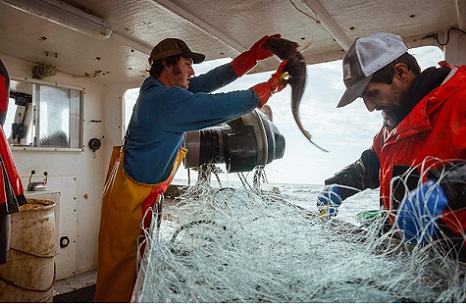
Experts fear American fishing industry, boating at risk as Biden prioritizes climate, green energy
The Biden administration has prioritized green energy at the expense of endangered whales and the U.S. fishing industry with regulation that limits both commercial fishing and recreational boating, according to experts. As they are imposing more regulations, they are also promoting offshore wind, which is actually harming commercial and recreational boating and potentially killing whales, Brady and Lapp said. “They positioned us as being these evildoers and now, 20 years later, whales are dropping dead like pigeons in Manhattan,” Brady said. “Here commercial fishermen and coastal communities are at the front line of fighting to protect the ocean itself, and we have crickets from virtually every NGO.” Video, >>click to read<< 09:09
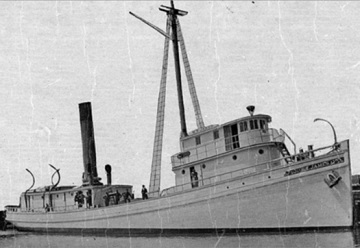
How the U.S. Fishing Fleet Served the Navy and Coast Guard in WWII
In the early days of World War II, demand skyrocketed for vessels to fill the needs of the U.S. sea services. The Coast Guard was no exception as they competed with the U.S. Navy and U.S. Army for new construction as well as privately owned ships. Facing a high demand for vessels, the service turned to the U.S. fishing industry as a source for its cutters. These emergency acquisitions included East Coast trawlers, whalers from both coasts, and East Coast menhaden fishing vessels, such as the Emergency Manning vessel Dow (WYP 353). During World War I and World War II, the menhaden fishing fleet became a ready reserve for the Navy and Coast Guard. Both services needed small, shallow draft vessels for coastal convoy escort, mine planting, minesweeping, and anti-submarine net tending duty. Many of these vessels were purchased or leased, while others were loaned to naval forces by fishing businesses as their contribution to the war effort. >click to read< 18:28
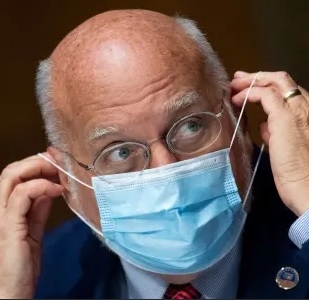
U.S. Commercial fishermen are frustrated by mask mandates from Maine to Alaska
Commercial fishing crews must be masked at all times, regardless of the number of people. The requirement stems from a Centers for Disease Control and Prevention rule issued in February saying all those on public transportation must be masked. The Coast Guard interpreted the rule to apply to all vessels, including commercial fisherman who sometimes work with crews of just three to five people. There are around 39,000 commercial fishermen in the United States. In a hearing with top administration health officials yesterday, Sens. Lisa Murkowski (R-Alaska) and Maggie Hassan (D-N.H.) brought this up. saying they’ve heard deep frustration from fishermen who argue that wearing a mask while doing their work is unsafe. >click to read< 12:43
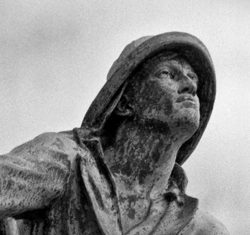
Sam Parisi: Its 2020 and time to move this industry forward!
Here we are again, at the end of the year, and decade for that matter, as 2019 is ending, and its time to move forward. As some of my fellow Fisherynation readers know, I am motivated to try improving the U.S. fishing industry for our country’s working U.S. fishermen. I have reached out to my Senators Markey, and Warren, and also to Congressman Moulton to help draft a US Fish Bill. This is an opportunity for everyone in this ridiculously diverse industry from sea urchin, and scallop divers, to clam dredgers, and every faction of the industry, traditional, and exotic, to have personal input into a bill built for you, built by you, and built by your fellow industry members. >click to read< 16:50

Its going to be up to people in the fishing industry to save our fishing industry by Sam Parisi
We ALL need to step up to the plate before this industry goes under because of absurd regulations, pandering politicians, and environmental groups. I have reached out to my Senators and Congressman, whom have actually responded after utilizing Fisherynation to get their attention, for which I am grateful, with little success from those elected officials regarding the issues I have continuously contacted them about. As usual, they disappoint with no action. Senator Markey did support an issue I asked him to, which was about supporting Alaska Senator Dan Sullivan’s S-K bill, which he did, and I thank him for that. >click to read< 16:50
MSA: Finding Win-Win Outcomes For Conservation And Utilization
The economic importance of the U.S. fishing industry cannot be overstated. The survival of many coastal communities largely depends on whether Congress and fishery managers can establish policies allowing fisheries to generate yield over the long term, rebuild overfished stocks and achieve the conservation objectives of the MSA. Read more here 09:05
NOAA’s spending on itself is under attack by Senator “Mo” Cowan! YOU GO MO!
 WASHINGTON – The plight of New England’s groundfishing fleet was once again a topic on Capitol Hill on Tuesday as a Massachusetts senator questioned a federal official about how his agency is spending money that’s intended to help fishermen. But Sen. William “Mo” Cowan, D-Mass., pressed a top Department of Commerce official on the use of federal dollars by the National Oceanic and Atmospheric Administration. Cowan said that, according to his calculations, just $8 million of the $113 million available in 2010 through the Saltonstall-Kennedy Act program went to fisheries. That decades-old program uses fees on imported fish to provide grants or development projects to benefit the U.S. fishing industry. continued
WASHINGTON – The plight of New England’s groundfishing fleet was once again a topic on Capitol Hill on Tuesday as a Massachusetts senator questioned a federal official about how his agency is spending money that’s intended to help fishermen. But Sen. William “Mo” Cowan, D-Mass., pressed a top Department of Commerce official on the use of federal dollars by the National Oceanic and Atmospheric Administration. Cowan said that, according to his calculations, just $8 million of the $113 million available in 2010 through the Saltonstall-Kennedy Act program went to fisheries. That decades-old program uses fees on imported fish to provide grants or development projects to benefit the U.S. fishing industry. continued

































